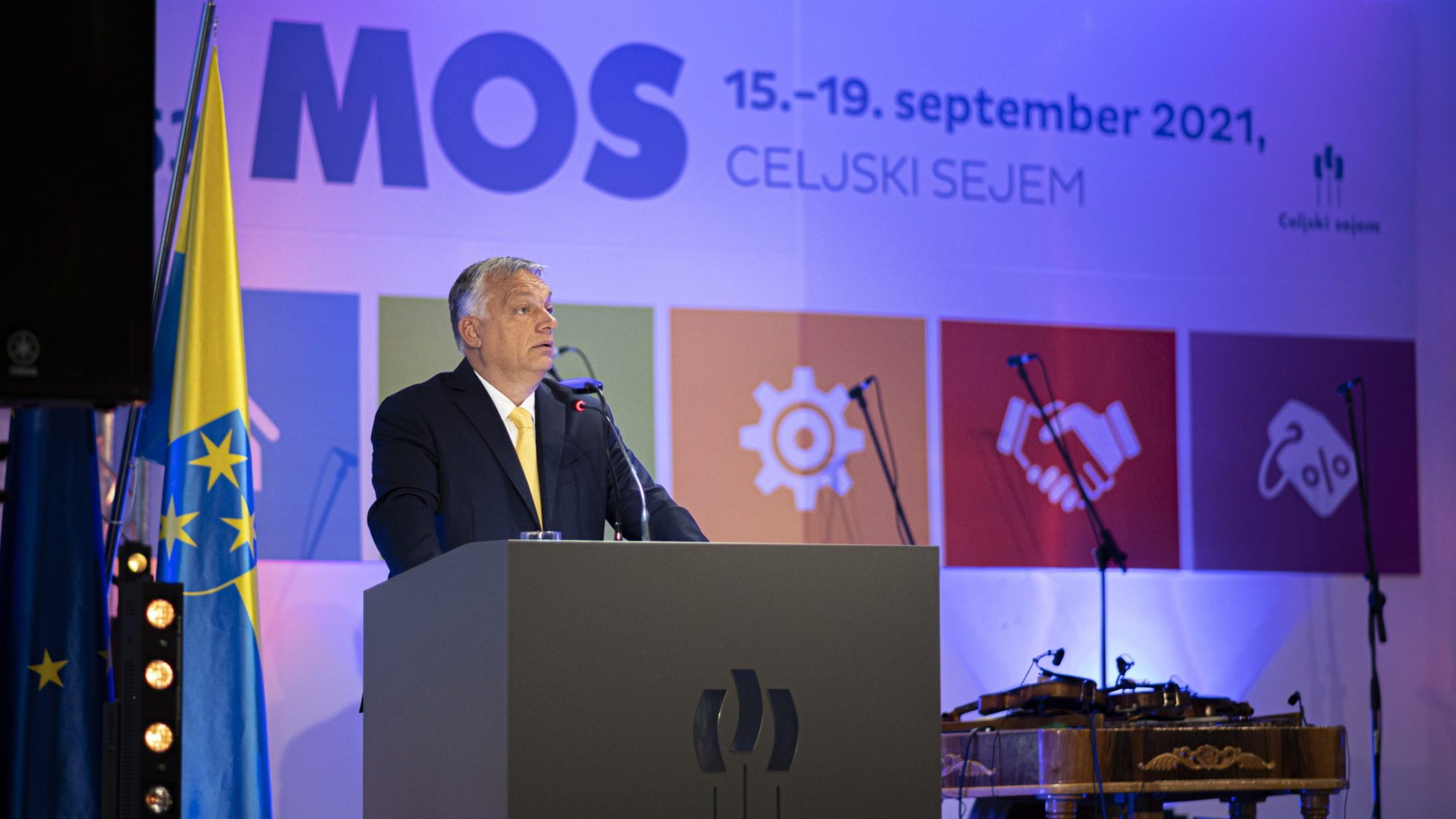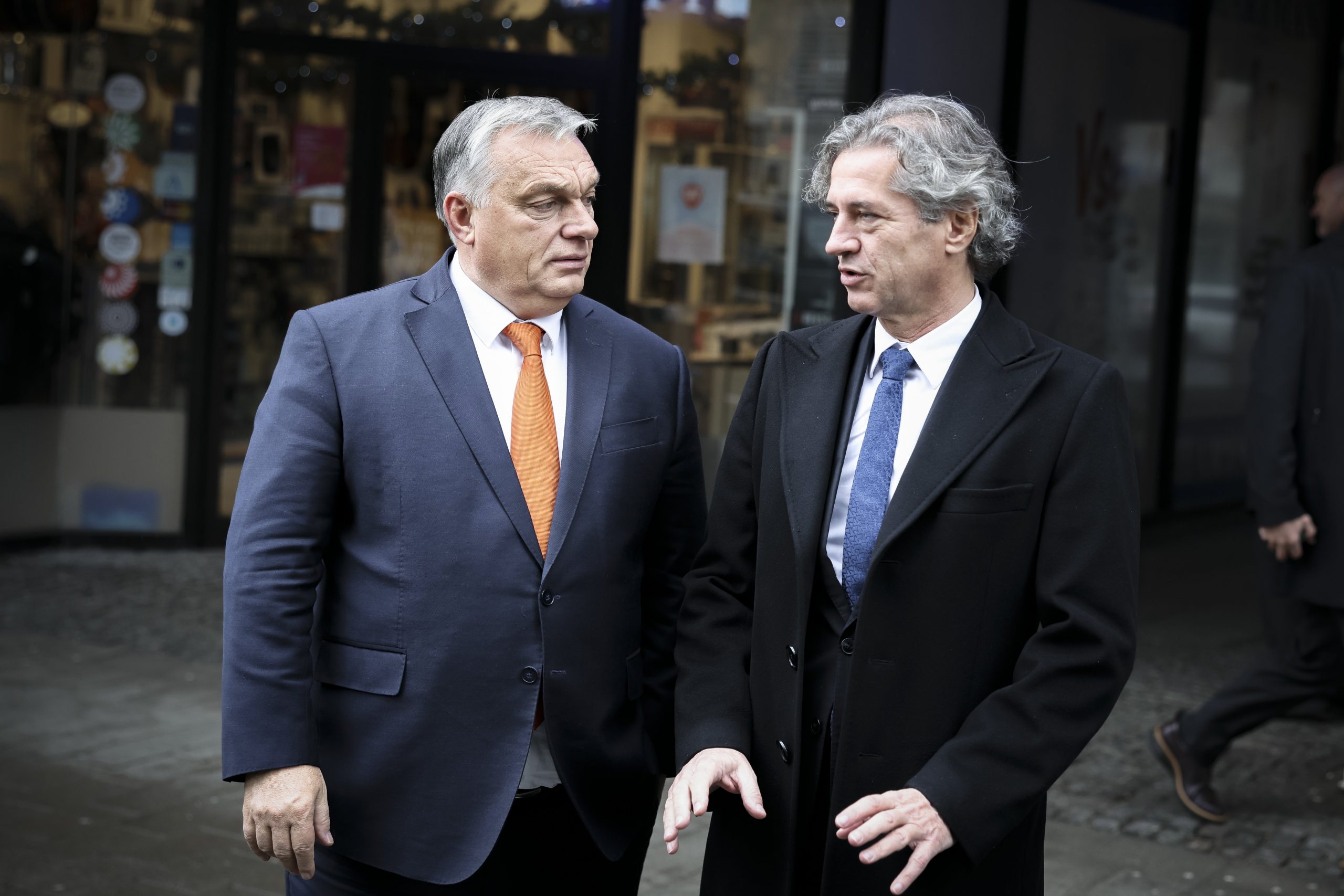
In his address delivered at the opening ceremony of the 53rd MOS International Trade and Business Fair, he highlighted that they did so at the best possible time, on the verge of a new era which both countries – Slovenia and Hungary – could be the winner of. Hungary is ready to continue the fruitful cooperation. He observed that at the fair Hungary has a display area of 525 square metres, with 26 Hungarian businesses present.
The Prime Minister stressed that Hungarians and Slovenians had created the most effective cooperation in their history. “We have always looked upon Slovenia as a Central European country similar to us,” and if we cooperate, if we combine forces, both countries, together with the rest of the countries of the Central European region, will be among the winners of the new era about to start in the world economy.
Mr Orbán said we are at the beginning of a new era in the world economy, “the pandemic has turned our lives upside down, causing a severe crisis not only in health care, but equally in our economies”. Last year was “a black year” in the global economy; 114 million people lost their jobs worldwide, investments fell by 42 per cent and the volume of world trade decreased by more than 5 per cent. He added that factories in the hundreds had closed down, big and strong international companies had been compelled to cut their capacities, and many international firms had dramatically reduced their activities; meaning that the balance of forces has changed and continue to change fundamentally in every segment of the world economy.
He took the view that the new era that began in the world economy this year will start with an extremely keen cycle of competition which will be about the global redistribution of production capacities. Factories will not necessarily be reopened in the places where they were closed down; capacities will not automatically be re-built in the places where they were present earlier, he pointed out.
The Prime Minister highlighted that investors are looking for new locations offering a better chance of success, and Hungary for its part has entered this competition. Those countries and regions will stand a good chance in the race which persevered during the crisis, had a strategy, did not cut capacity, continued to implement developments also last year and where people managed to keep their jobs, he explained. He added that the Central European economic region, with Slovenia and Hungary in it, is such a place.
He also said for the Hungarian people Slovenia had never belonged to the Western Balkans as in the Hungarian people’s minds there is a big Central European economic space which “extends from the shores of Poland to the Adriatic, a cultural area, an economic region, a big Central European economic region which provides genuine support and security for the countries” that are there. Therefore, “we have always looked upon Slovenia as a Central European country similar to us,” and if we cooperate, if we combine forces, both countries, along with the rest of the countries of Central Europe, will be among the winners of the new era of the world economy, he said.
He pointed out that Slovenia’s economic figures in the first six months clearly prove this. Prime Minister Janez Jansa and his government created the conditions which enable Slovenia “to return at a fantastic speed to the level of its former economic performance,” he said.
Mr Orbán highlighted that in recent years the cooperation of the two countries had entered a new dimension. Since Mr Jansa became the leader of Slovenia, “Slovenian-Hungarian relations have returned to the foundations of mutual respect, and from this both nations will profit much,” he said.
He took the view that this year the volume of bilateral trade will beyond doubt break all previous records; the two countries will realise the highest volume of trade of all time. The electricity networks of the two countries will be connected together by the middle of next year, a mutual fund has been set up to develop the regions near the border, an international test corridor is being built for the testing of autonomous cars, Hungary is ready to connect together the gas pipeline networks, and the largest Hungarian businesses have appeared in the Slovenian economy, banking system and fuel supply, he stated.
The Prime Minister stressed that the Hungarian-Slovenian trade balance is positive for Slovenia; Slovenia is winning in trade between the two countries. However, this growth in volume equally favours Hungary, and so even with a negative balance, Hungary has a vested interest in increasing the volume of trade, he pointed out.
He observed that 46 Slovenian companies operate in Hungary, and others are welcome, too.

